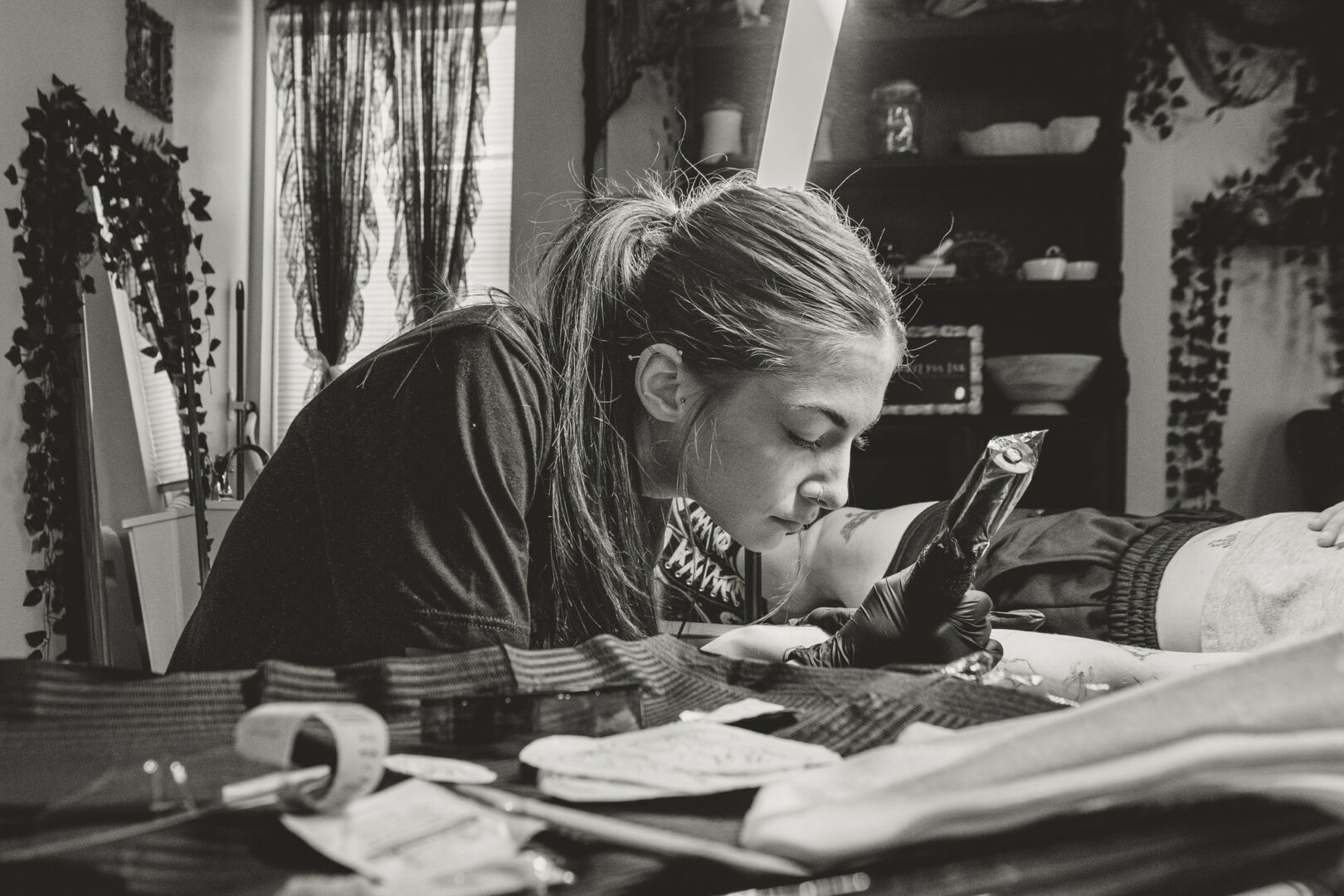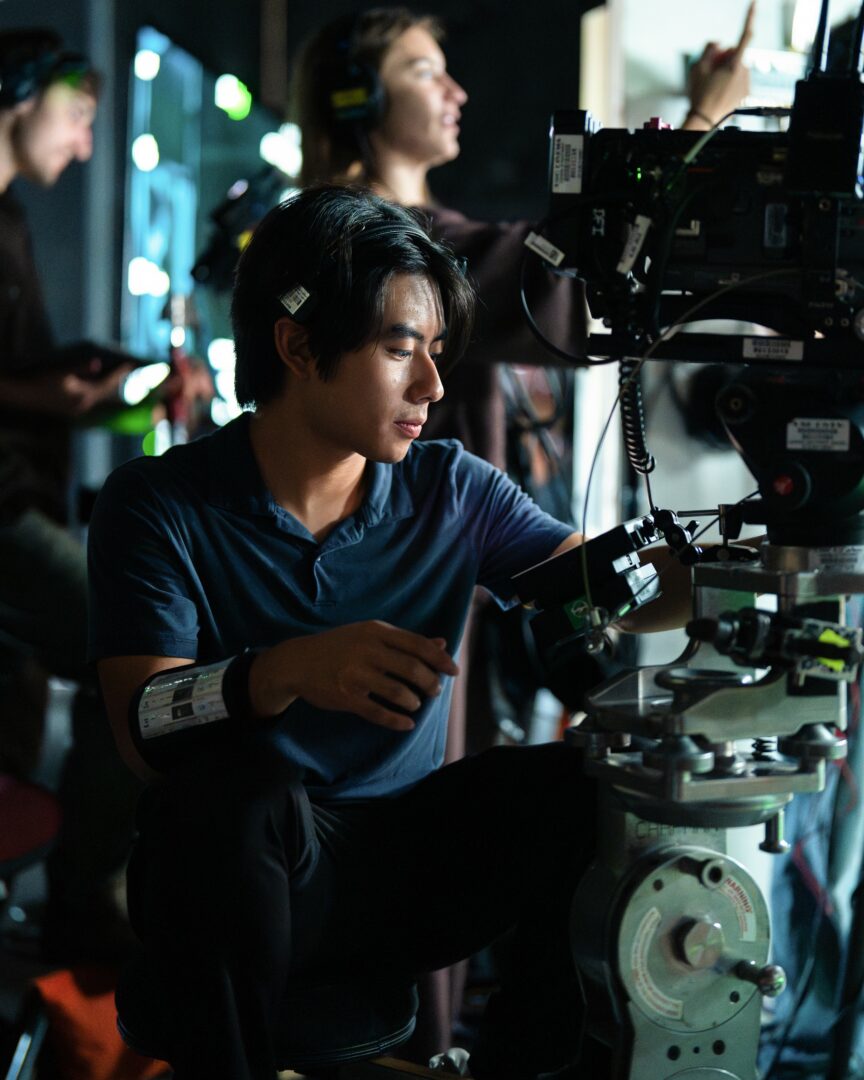Alright – so today we’ve got the honor of introducing you to Sam Bellenger (sblngr/sb). We think you’ll enjoy our conversation, we’ve shared it below.
Alright, so we’re so thrilled to have Sam with us today – welcome and maybe we can jump right into it with a question about one of your qualities that we most admire. How did you develop your work ethic? Where do you think you get it from?
I think a lot of the success I’ve had with my work comes from a fear of it not working out. From early on in my design career I realised that I’d only get as much from it as I put into it, So if I wasn’t constantly putting my concept work out there then I wouldn’t be seen by potential clients.
It was a risk when I made this my full time job, I was juggling University 5 days a week, working a part-time job on the weekends and trying to make a name for myself in the ‘cover art designer’ space online. Eventually I could take on enough design projects that I really didn’t need to work the weekend job anymore, but it took a long time for me to give it up and take the risk of doing design full-time.
Even now with the success that I’ve had and the social media followers I’ve gained, I still worry it could all disappear if I don’t put the effort in. I don’t have to work as hard to get my name out there now but it’s still something I always make an effort to do.


Let’s take a small detour – maybe you can share a bit about yourself before we dive back into some of the other questions we had for you?
I’ve been doing freelance graphic design for around 6 years now. Initially my focus was on creating album cover artworks but I’ve since branched out into title cards, merchandise and promotional designs like billboards and posters. I originally just started making concept cover arts and posting them to Instagram for some practise in using the Adobe programs, but eventually I was asked by a few people to create custom artworks for their song releases.
I remember getting one of my first big clients and showing the other people at my university, we printed out the Spotify page with my artwork on it. The artist had over 10 thousand monthly listeners on Spotify I was mind blown I’d make that happen just from posting my cover arts online.
Now my biggest client since has been Post Malone who has 66 Million monthly listeners on Spotify, I designed the “I Had Some Help” title for the music video. A few of my other clients include: Lil Baby, Skrillex, Gunna, Central Cee & Bryson Tiller and I’ve worked with most of the big music labels like UMG, Warner Records, Island Records, Interscope & Atlantic Records.


There is so much advice out there about all the different skills and qualities folks need to develop in order to succeed in today’s highly competitive environment and often it can feel overwhelming. So, if we had to break it down to just the three that matter most, which three skills or qualities would you focus on?
I think the most important thing I learnt early on was to keep my presence online very ‘work focused’ so if anyone comes across any of my social media accounts they can see my work. I don’t really use social media much outside of work stuff, I have over 460 Instagram posts and not a single one is about myself or what I get up to outside of work. I know some people may think it could help me grow if I have a big more personality online but I think I like to let my work speak for itself.
Having a good focus area to begin with when starting any kind of creative freelance career is important. My main focus was creating cover artworks and I slowly branched out from there into creating posters, music video titles, logos and clothing designs. I think I can pretty much provide anything an artist should need for the release of an album or song now, which means they only need to come to me instead of finding other people to cover each part of the project.
Finally I always think the best thing you can do as a freelancer is to be nice and easy to work with. You could have the best portfolio but if you’re unreliable or rude someone isn’t going to choose to work with you, as much as most of the work comes through social media there’s a lot of word of mouth that helps with getting your name to the right people. If someone can recommend you not only on the quality of your work but that you’re nice, reliable and easy to work with you’ll go far.


How would you describe your ideal client?
I think having a client that is invested in creative direction of their project is really important, it’s always difficult to work for a client who just wants quantity over quality. When working with a client I like to get as much info from them as possible, what are they needing at the end of the project, what do they like, what don’t they like.
Once I have a solid idea from the client of what they need from me I will always take at least a 50% deposit down before starting the project. Not only does this protect me if they cancel a project, It also turns it back on them to commit to working with you. A lot of bad clients would love to get as many ideas as possible from a range of artist and just pay their favourite, But in taking a deposit you can usually guarantee that you’re the only freelancer working on this project.
Often I won’t work with someone who doesn’t have an idea already in mind for the artwork they want to commission me for. I think that if they aren’t interested in the creative enough to come up with some sort of idea then they’ll just want to get as much from me as possible, and usually these are the client’s who would refuse to pay a deposit and just be difficult when it comes to the money side of the work.
Contact Info:
- Website: https://sblngr.com
- Instagram: https://www.instagram.com/sblngr/
- Linkedin: https://www.linkedin.com/in/sam-bellenger/
- Twitter: https://x.com/sblngr


so if you or someone you know deserves recognition please let us know here.




